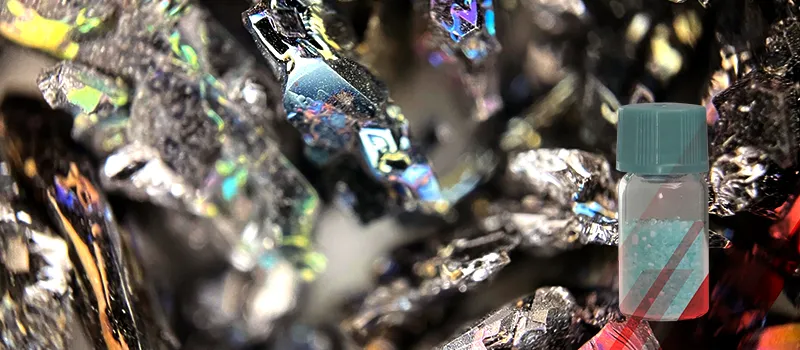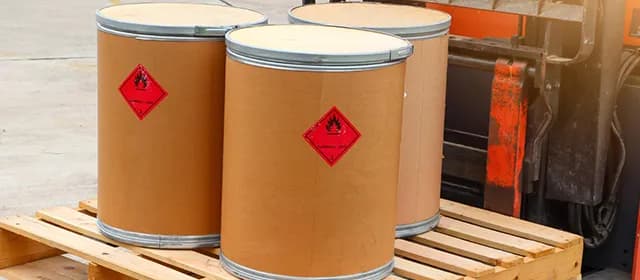Iron deficiency is surprisingly frequent among humans.
If you're exhibiting iron deficiency symptoms, ferrous sulfate is a dietary supplement that can boost your levels. As a result, it's frequently used in the treatment of iron-deficient anemia. Kings Research forecasts the ferrous sulfate market to potentially garner a valuation of USD 1,069.41 million by 2030.
But how do pills containing ferrous sulfate work? When are they able to assist? And how can take extra iron to benefit you? Let’s get started!
What is Ferrous Sulfate?
Iron exists in a variety of forms, one of which is ferrous sulfate.
The solid mineral resembles tiny crystals in its native state. It is commonly referred to as "green vitriol" because the crystals typically have a tint of yellow, brown, or bluish-green. Dietary supplements are made with several forms of iron. The most prevalent types are ferrous gluconate, ferric citrate, and ferric sulfate, in addition to ferrous sulfate.
Iron supplements typically come in one of two forms: ferric or ferrous. The iron atoms' chemical composition is what determines this. Iron in ferrous rather than ferric forms is more easily absorbed by the body. Thus, medical professionals widely believe that ferrous forms, such as ferrous sulfate, are the best option for iron supplementation.
Benefits of Taking Ferrous Sulfate
The main advantage of taking ferrous sulfate supplements is that they keep your body's iron levels regular. By doing this, you might avoid developing an iron deficiency and all the associated mild to severe side symptoms.
Here is a closer look at the advantages of taking these supplements.
- Aids in Boosting Blood Iron Levels
An important mineral, iron is one of the most prevalent elements on Earth. In order to maintain good health, people must include it in their diet. The red blood cell proteins myoglobin and hemoglobin, which are crucial for carrying and storing oxygen, are the main ways that the body consumes iron.
In addition, iron is crucial for the production of hormones, the growth and development of the neurological system, and fundamental cellular processes. Despite the fact that many people take iron supplements, it may also be found naturally in many foods, such as beans, spinach, potatoes, tomatoes, and especially meat and seafood, such as oysters, sardines, chicken, and beef.
Animal products are among the richest sources of iron. Therefore, using ferrous sulfate iron supplements to maintain their iron levels may be advantageous for vegans, vegetarians, and persons whose regular diet does not include many items high in iron.
- May Prevent Iron Deficiency Effects
Low blood iron levels can easily be treated, prevented, or reversed by taking supplements containing ferrous sulfate.
Avoiding iron insufficiency will help you prevent many of the unpleasant side effects of low iron levels in addition to ensuring that your body has enough of the crucial nutrients to keep working normally.
Low iron levels can cause several serious adverse effects, including:
- Headaches
- Fatigue
- Weakness
- Hair loss
- Low energy levels
- Difficulty concentrating
- Upset stomach
- Poor immunity
This is not a complete list of all the signs and symptoms of low iron levels; rather, it is a broad overview. As iron deficiency goes from mild to severe, symptoms could worsen.
- Remedy for Iron Deficiency Anemia
Anemia is signified by a low amount of red blood cells or hemoglobin in your blood. Iron deficiency is one of the most prevalent causes of anemia because iron plays a crucial role in powering the red blood cells that carry oxygen throughout the body.
A severe case of iron shortage, known as iron deficiency anemia (IDA), can result in some of the most serious symptoms of iron deficiency and has substantial implications on the human body.
Taking an oral iron supplement, such as ferrous sulfate, is one of the most popular and successful treatment options for IDA.
- Could Positively Impact Surgical Outcomes
According to research, an iron deficiency increases the likelihood of postoperative complications and mortality. For instance, research on 730 heart surgery patients discovered that those with low ferritin levels, a sign of iron deficiency, had longer hospital stays and more adverse events, including death. A study including over 227,000 procedures provides evidence for this effect, revealing that even slight iron deficiency anemia prior to surgery increases the chance of complications and post-procedure mortality.
Ferrous sulfate supplements before surgery can enhance outcomes and reduce complications due to iron deficiency. However, raising iron levels through supplementation takes time. Oral supplements, like ferrous sulfate, effectively boost iron stores, but daily intake for 2–5 months might be needed to normalize levels. Individuals lacking time before surgery might not benefit from ferrous sulfate and could require alternative iron therapy.
Furthermore, research on iron therapy for pre-surgery anemia is limited. More high-quality studies are needed to determine optimal methods for increasing iron levels before surgery.
Downsides of Taking Ferrous Sulfate
Supplements containing ferrous sulfate frequently have common side effects. These can include numerous gastrointestinal problems, including nausea, diarrhea, vomiting, constipation, and dark or discolored stool, among others.
Additionally, some people have reported experiencing heartburn after using the medication. There is also a chance that certain drugs and supplements containing this compound could interfere. Inform your doctor about any of the following medications you are taking before starting ferrous sulfate supplements:
- Antacids for indigestion treatment
- Proton pump inhibitors for ulcers and GERD
- Laxatives for managing constipation
- Levodopa for treating Parkinson’s disease
- Levothyroxine for managing goiters, thyroid disease, and cancer
Who’s Prone to Iron Deficiency?
Some groups of people require more iron at specific points in their lives. As a result, individuals are more likely to experience iron deficiency and low iron levels. Others may also have low iron levels as a result of their habits and diets.
Individuals at the highest risk of having low iron levels are
- Infants
- Children
- Female Adolescents
- Pregnant people
- Premenopausal people
- Individuals with certain chronic conditions
- Frequent blood donors
- Vegetarian and vegan individuals
Ferrous sulfate supplements can be particularly beneficial for these groups.
The Bottom Line
Ferrous sulfate stands as a vital supplement with significant potential to address iron deficiency and its associated health implications. From its essential role in red blood cell formation to its impact on energy levels and overall well-being, it offers a simple yet effective solution to combat iron deficiency. However, it's crucial to navigate its usage mindfully, taking into account potential side effects, interactions with medications, and individual health needs.



